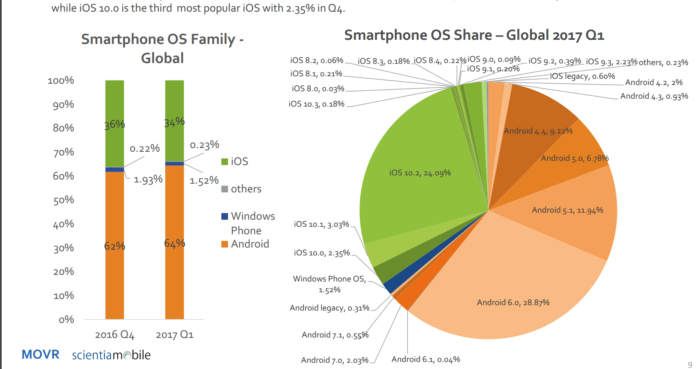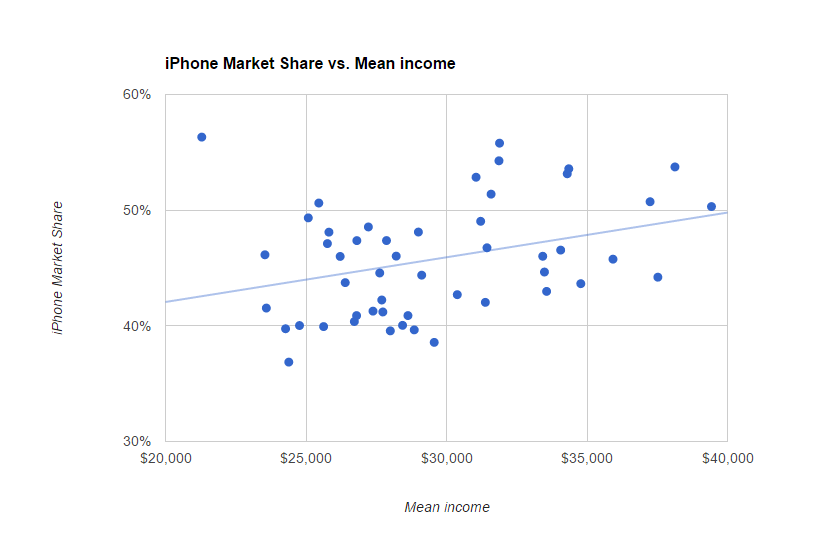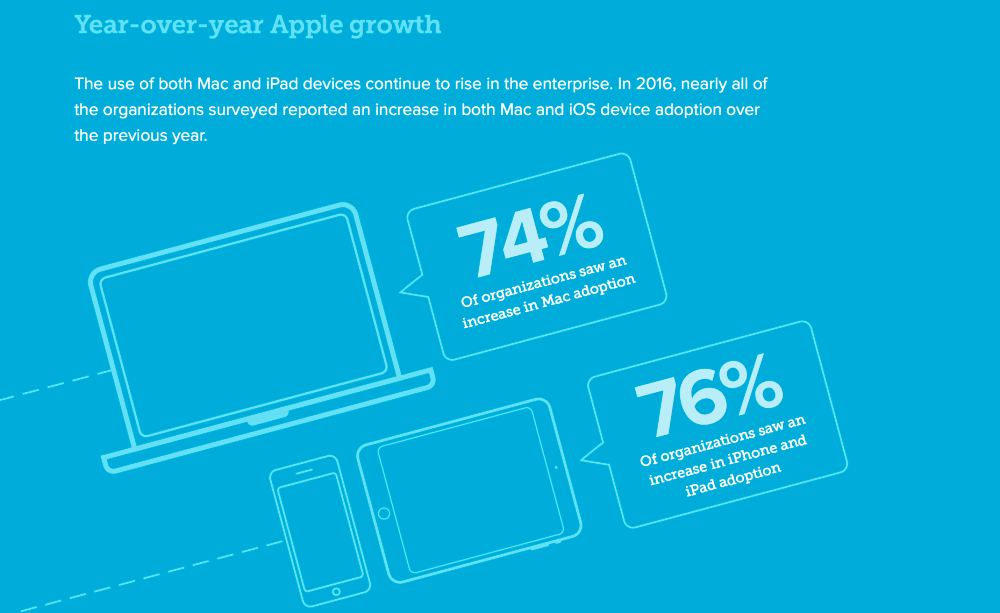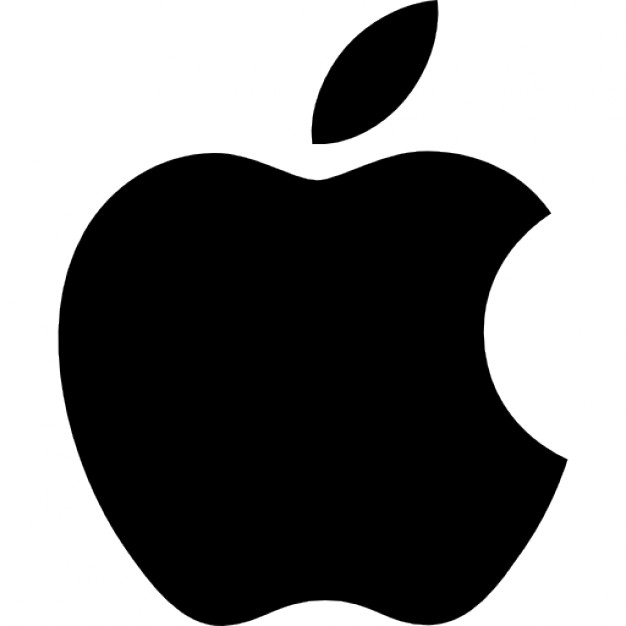Recently, Apple CFO Luca Maestri announced that the tech company set a “new enterprise revenue record for the March quarter, and we expect this momentum to continue for the remainder of the year.” Considering that a) Apple just passed $800 billion in market capitalization (the first US company ever), and b) back in 2015 Tim Cook stated that their estimated annual enterprise revenue reached $25 billion; it may be surprising just how big a revenue source the enterprise market is for the tech giant.
Apple seems to be pushing hard to be the solution to mobile enterprise, and they just might win the market. Here are 5 reasons why Apple may beat out everyone else.
1. Greater mobile security.
Android’s problem has always been fragmentation. Even though it has a 64% share of the global smartphone OS market, that’s spread over generations of Android OS; some which are wildly outdated. In fact, less than 8% of Android devices are running the latest version:

The issue here is that older versions of Android are more susceptible to malware. One source states that a new Android malware is found every 10 seconds. But Apple’s OS has never suffered this same level of fragmentation and most devices running iOS run the latest and greatest version.
Add to this the fact that there are still generally less malware to be found on iOS devices, and enterprises who are becoming increasingly security-conscious have more incentive to choose Apple devices for their business.
2. Longer device support.
No company wants to spend time and money constantly updating smartphones, tablets, and laptops for their employees. In the mobile space, this process can range from an IT headache to a straight up nightmare of patching, bringing new devices online, or troubleshooting. Android devices have had shoddy update support since anyone can remember. Even for Google’s own phones (Nexus or Pixel line), support is limited to 2 years of OS updates and 3 years of security patches.
Meanwhile, Apple’s devices see much longer support. The article linked above points to ongoing security update support for the iPhone 5, which was released back in 2012. So if you’re running an enterprise with hundreds of mobile devices, do you want to update them every 2 years or know that even after 5 years, these devices will still be supported? It’s a no-brainer here, and if Android (and Windows) wants to compete, it needs to increase software support for at least its flagship devices.
3. BYOD is the new reality.
Of course, some enterprises are foregoing company-owned hardware entirely and are adopting a Bring Your Own Device (BYOD) philosophy for its employees. In fact, this market trend is becoming quite popular to the tune of $35 billion and poised to double in a few years. But shouldn’t this benefit Android, since most people in the world use Android devices? Not so fast. We’re talking the enterprise market here, and it’s still true that higher-income people are more likely to own an iPhone.

While we’re not saying that only rich people work in enterprise companies, the numbers don’t lie: as of two years ago, the iPhone and iPad still dominated the enterprise BYOD market. Because Apple has been so successful penetrating consumers at home, the BYOD movement is just porting that success over to the business sector. Apple’s competitors are going to have a tough time battling on two different fronts that Apple already owns.
4. Big corporate partnerships.
Maestri dropped some big names in his recent conversation with analysts:
- Volkswagen standardized the iPhone as its corporate smartphone.
- Capital One is buying Macs for its employees, as well as Apple Watches.
- Deloitte assigned 5,000 people to its new Apple practice.
SAP. Cisco. And of course IBM’s “MobileFirst for iOS” which might be the biggest one of them all. Enterprise after enterprise are lining up to work with Apple’s hardware and software as they move forward into a mobile-first landscape.
And Apple is making all this very easy for enterprises by pushing their Mobility Partner Program which is the company’s concerted effort to dominate the corporate market. Apple knows it has a lead here, and it’s pulling out all the stops to make sure they stay ahead of the pack.
5. The Apple brand is still coveted.
Despite missteps in the eyes of the most tech-obsessed (ie. “Macbook Pros have gone downhill!”), the brand of Apple is still the reigning king of tech. That’s why even though the Apple Watch is just so-so, they’ve found a niche with enterprise companies. That’s why they crossed $800 billion in market cap. That’s why everyone in Silicon Valley works off Macbooks. And that’s why enterprises still just want to use Apple products.
Can Android or Windows compete with this mindset that’s taken root in all of our brains? Maybe, but it’ll take them a Herculean effort. Remember, the Microsoft Surface was supposed to be the mobile device that dethroned the iPad in the corporate world. But at the moment, sales of the Surface are down and iPad sales for the enterprise market are up:

If we had to place our bets, we’d say that Apple will be dominating the enterprise space for the next few years. Anyone want to take the under on Apple hitting a trillion dollar market cap?






